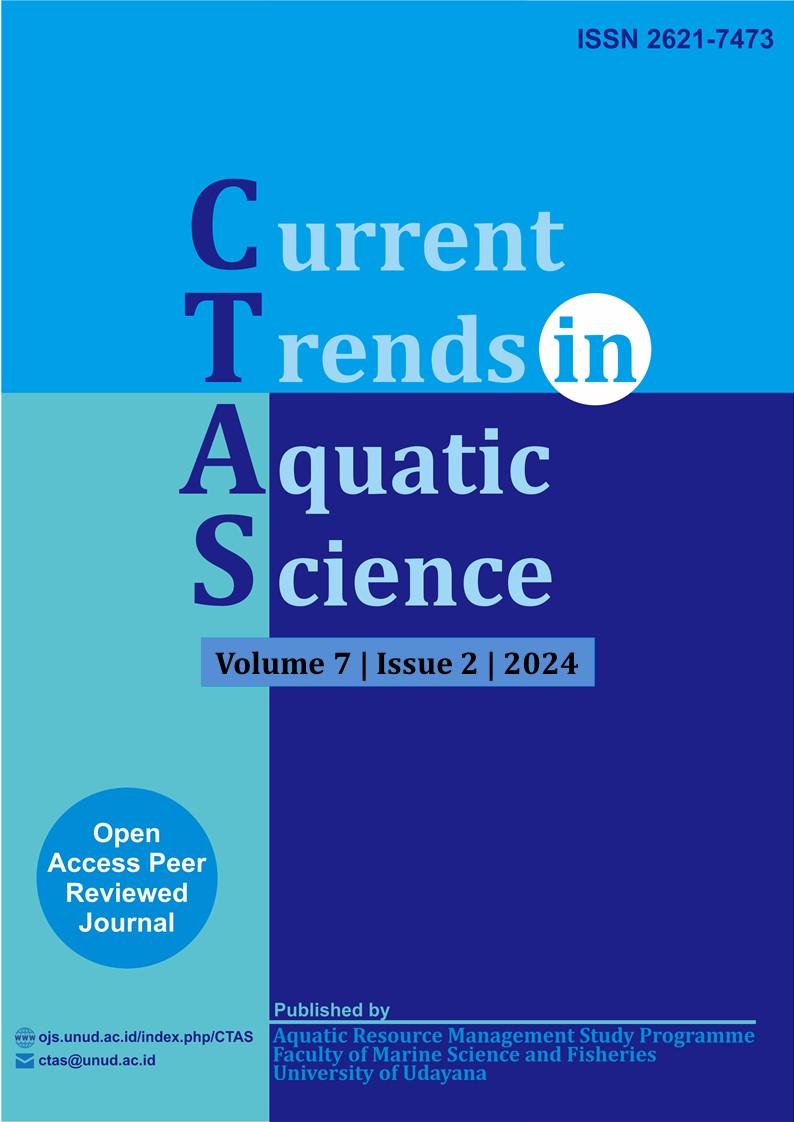Perbandingan Kualitas Air Sungai Rangda dan Sungai Punggawa, Bali
Abstract
The water quality of a region's rivers is highly influenced by human activities. A comparison of water quality in the Rangda River and Punggawa River, Bali, was conducted to examine the parameters of water quality in both rivers. This research was carried out in April 2023 using a quantitative descriptive method. Samples were collected using purposive sampling every week for one month. There were 3 sampling points in each river: the upstream, middle, and downstream areas. The measured water quality parameters were Total Organic Matter (TOM), Dissolved Oxygen (DO), Nitrate (NO3), Phosphate (PO4), pH, Total Dissolved Solids (TDS), and Turbidity. Data analysis was performed using Microsoft Excel software, and a comparative descriptive analysis was used to illustrate the differences in water quality between the two rivers. The research results indicated that the water quality in both rivers experienced a decline from the upstream to the downstream. The Total Organic Matter in the Rangda River was relatively higher compared to the Punggawa River. The average nitrate concentration from the upstream to the downstream in the Rangda River increased by 194%, while in the Punggawa River, it increased by 100%. This was attributed to human activities starting from the upstream in the Rangda River, resulting in a higher input of pollutants towards the downstream, in contrast to the Punggawa River where human activities were more concentrated in the middle area.


